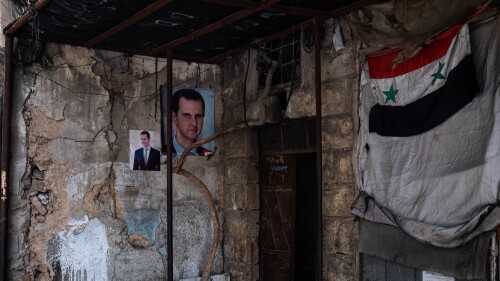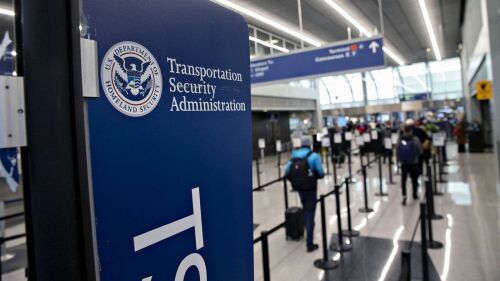[Title and text differ from the NY Sun version]
New York City’s Arabic-language public school, the Khalil Gibran International Academy, opens its doors this week, with special security, for 11- and 12-year-old students. One hopes that the prolonged public debate over the school’s Islamist proclivities will prompt it not to promote any political or religious agendas.
Count me as skeptical, however, and for two main reasons. First is the school’s genesis and personnel, about which others and I have written extensively. Second, and my topic here, is the worrisome record of taxpayer-funded Arabic-language programs from sea to shining sea.
A class at the Tarek ibn Ziyad Academy, Inver Grove Heights, Minnesota. | |
The trend is clear: pre-collegiate Arabic-language instruction, even when taxpayer funded, tends to bring along indoctrination in pan-Arab nationalism, radical Islam, or both. Note some examples:
- Amana Academy, Alpharetta, Georgia, near Atlanta: A charter school that requires Arabic-language learning, Amana boasts of its “institutional partnership” with the Arabic Language Institute Foundation (ALIF). But ALIF forwards the learning of Arabic as a means “to convey the message of Qur’an in North America and Europe” and thus to “help the Western countries recover from the present moral decay.”
- Carver Elementary School, San Diego: A teacher, Mary-Frances Stephens, informed the school board that she taught a “segregated class” of Muslim girls and that each day she was required to release them from class for an hour of prayer, led by a Muslim teacher’s aide. Ms. Stephens deemed this arrangement “clearly a violation of administrative, legislative and judicial guidelines.” The school’s principal, Kimberlee Kidd, replied that the teacher’s aide merely prayed alongside the students and the session lasted only 15 minutes. The San Diego Unified School District investigated Ms. Stephens’s allegations and rejected them, but it nonetheless changed practices at Carver, implicitly substantiating her critique. Superintendent Carl Cohn eliminated single-gender classes and reconfigured the schedule so that students can pray during lunch.
- Charlestown High School, Massachusetts: The school’s summer Arabic-language program took students on a trip to the Islamic Society of Boston, where, the Boston Globe reports, students “sat in a circle on the carpet and learned about Islam from two mosque members.” One student, Peberlyn Moreta, 16, fearing that the gold cross around her neck would offend the hosts, tucked it under her T-shirt. Anti-Zionism also appeared, with the showing of the 2002 film Divine Intervention, which a critic, Jordan Hiller, has termed an “irresponsible film,” “frighteningly dangerous,” and containing “pure hatred” toward Israel.
- Tarek ibn Ziyad Academy, Inver Grove Heights, Minn.: Islamic Relief Worldwide, an organization that allegedly has links to jihadism and terrorism, sponsored this charter school, which requires Arabic as a second language. The academy’s name openly celebrates Islamic imperialism, as Tarek ibn Ziyad led Muslim troops in their conquest of Spain in 711 A.D. Local journalists report that “a visitor might well mistake Tarek ibn Ziyad [Academy] for an Islamic school” because of the women wearing hijabs, the carpeted prayer area, the school closing down for Islamic holidays, everyone keeping the Ramadan fast, the cafeteria serving halal food, classes breaking for prayer, almost all the children praying, and the constant use of “Brother” and “Sister” when adults at the school address each other.
Only in the case of the Iris Becker Elementary School in Dearborn, Michigan, is the Arabic-language program not obviously pursuing a political and religious agenda. Its program may actually be clean; or perhaps the minimal information about it explains the lack of known problems.
The above examples (and see my Web log entry “Other Taxpayer-Funded American Madrassas” for yet more) are all American, but similar problems predictably exist in other Western countries.
This troubling pattern points to the need for special scrutiny of publicly funded Arabic-language programs. That scrutiny should take the form of robust supervisory boards whose members are immersed in the threat of radical Islam and who have the power to shut down anything they might find objectionable.
Arabic-language instruction at the pre-collegiate level is needed, and the U.S. government rightly promotes it (for example, via the “National Security Language Initiative” on the national level or the “Foreign Language in Elementary Schools” program on a local one). As it does so, getting the instruction right becomes ever more important. Citizens, parents, and taxpayers have the right to ensure that children attending these publicly funded institutions are taught a language skill—and are not being recruited to anti-Zionism or Islamism.








